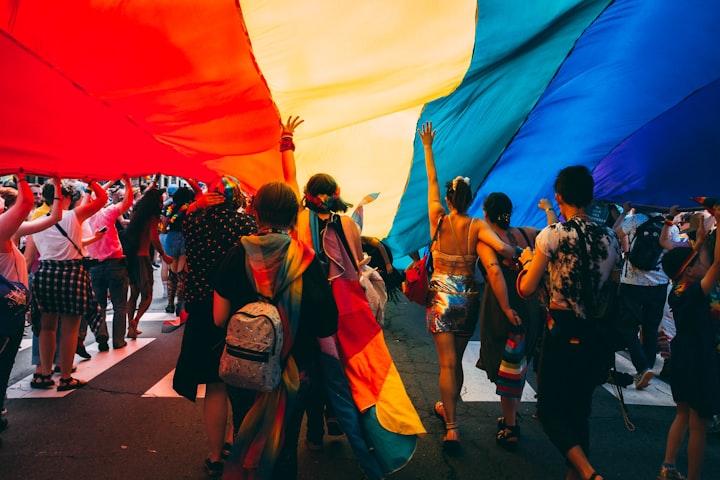
LGBTQ is an acronym that stands for lesbian, gay, bisexual, transgender, and queer/questioning. It is used to describe individuals and communities that are non-heterosexual and non-cisgender. In this article, we will explore what these terms mean and provide an introduction to understanding LGBTQ.
Lesbian
A lesbian is a woman who is emotionally, romantically, or sexually attracted to other women. This term is specific to women and does not include attraction to men.
Gay
Gay is a term used to describe men who are emotionally, romantically, or sexually attracted to other men. It is also used as an umbrella term to describe the broader LGBTQ community.
Bisexual
Bisexual individuals are those who are attracted to both men and women. This attraction can be emotional, romantic, and/or sexual.
Transgender
Transgender individuals are those who identify as a gender different from the one assigned to them at birth. This can involve undergoing medical procedures such as hormone therapy and/or gender reassignment surgery.
Queer/Questioning
Queer is an umbrella term used to describe individuals who do not identify as heterosexual or cisgender. It can also include those who identify as non-binary, genderqueer, or other gender identities. Questioning refers to individuals who are unsure or exploring their sexual orientation or gender identity.
Understanding LGBTQ Terminology
It is important to note that LGBTQ terminology is constantly evolving and can be complex. It is important to use respectful language and ask individuals how they would like to be referred to. It is also important to not assume someone's sexual orientation or gender identity based on their appearance or behavior.
The Life of LGBTQ: Understanding the Struggles and Triumphs
The life of LGBTQ individuals can be challenging due to discrimination, marginalization, and lack of acceptance in many societies. However, the LGBTQ community has also made great strides in recent years in terms of gaining equal rights and visibility.
Challenges Faced by LGBTQ Individuals
LGBTQ individuals face a variety of challenges, including:
Discrimination: LGBTQ individuals may face discrimination in the workplace, housing, healthcare, and other areas of life.
Bullying and harassment: LGBTQ youth are more likely to experience bullying and harassment, which can have negative effects on their mental health and well-being.
Lack of legal protections: In many countries, LGBTQ individuals are not legally protected from discrimination or hate crimes.
Lack of access to healthcare: LGBTQ individuals may face barriers to accessing healthcare, including discrimination from healthcare providers.
Family rejection: LGBTQ individuals may face rejection from family members and a lack of acceptance within their own communities.
Triumphs of the LGBTQ Community
Despite these challenges, the LGBTQ community has made significant progress in recent years. Some of the triumphs include:
Marriage equality: In many countries, LGBTQ individuals now have the legal right to marry.
Increased visibility: The LGBTQ community has become more visible in mainstream media and popular culture, helping to promote acceptance and understanding.
Pride events: Pride events, including parades and festivals, celebrate the LGBTQ community and promote visibility and acceptance.
Legal protections: In some countries, legal protections for LGBTQ individuals have been implemented to prevent discrimination and hate crimes.
Conclusion
The life of LGBTQ individuals is complex and varied. While there are still many challenges facing the LGBTQ community, there have also been significant triumphs in recent years. It is important to continue promoting acceptance and understanding to ensure that LGBTQ individuals are able to live full and happy lives.
LGBTQ individuals and communities have a diverse range of experiences and identities. Understanding LGBTQ terminology and respecting individuals' identities is an important step in creating an inclusive and welcoming society.





Comments
There are no comments for this story
Be the first to respond and start the conversation.